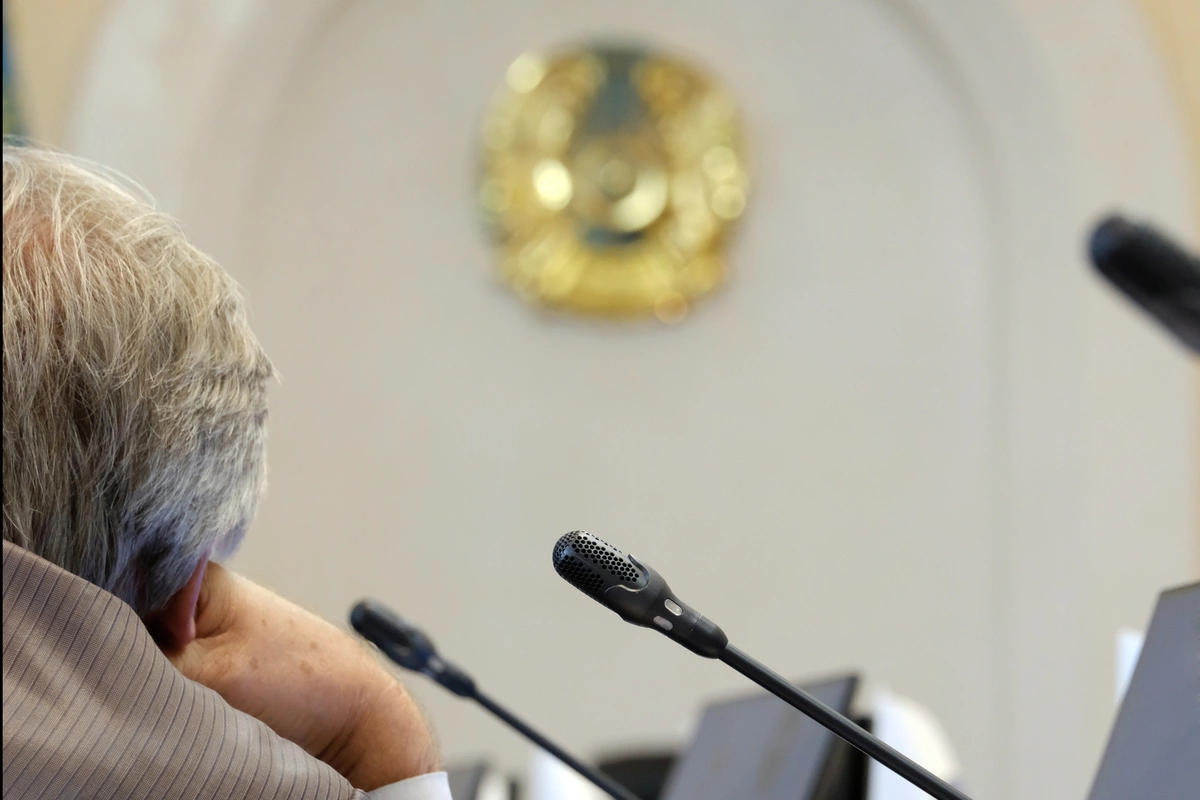
RFE/RL’s lawsuit against the Ministry of Foreign Affairs of Kazakhstan, a potential ban on foreign media, and discrimination against journalists—Kazakhstani media’s troublesome reality.
Image: ROMSVETNIK/Shutterstock
Recent news about Kazakhstan planning to ban foreign media and foreign journalists who don’t have accreditation from the country’s government shed light on the ongoing oppression that the press in the country has to face and how the law ‘On Mass Media’ will further limit the foreign media’s coverage of the country.
A few days later, Radio Azattyq, the Kazakhstani branch of the U.S. Congress-funded media corporation RadioFreeEurope/RadioLiberty (RFE/RL), announced that they filed a lawsuit against the Kazakhstan’s Ministry of Foreign Affairs due to the denial of accreditation of 36 of their journalists, some of which were waiting for their accreditation to be renewed since 2022.
These are not two separate events that came out of the blue but a continuation of the new law ‘On Mass Media,’ which was approved by Kazakhstani Majilis (lower house of parliament) on 30 November 2023, further limiting freedom of the press in the country and censoring journalists.
President Tokayev proposed the law in March 2022 in his address to the nation, two months after the Kazakh Unrest. It was intended to make media free and competitive as it is “critically important for any modern country.” So, when in June of that year the Ministry of Information and Social Development put together a working group of 60 people, including journalists and media experts, to work on the new law, it seemed like the progressive reforms promised by Tokayev after the January events were going to happen.
However, the illusions of the free media in the country were shattered as soon as the concepts of the new law, ‘On Mass Media,’ were revealed on 2 February 2023, alarming many experts and human rights activists. “The text of the bill […] was a big surprise for us,” said Diana Okremova, the director of the Legal Media Center. “Text that was absolutely not agreed upon by the working group. No one even notified the working group that the ministry had come up with a text that included some innovations. We regard this as discrediting the working group—this is a sign that our activities are completely unimportant for the ministry."
The head of the legal service, Media Koldau, Gulmira Birzhanova, explained that the new bill was “a merger of two existing laws—the current law ‘On Mass Media’ and the law ‘On Television and Radio Broadcasting’ with slightly amended norms.”
Although the law was not that different from its former versions, it did change the trajectory of the freedom of the press for the worse. One of the journalists who was part of the working group, Ainur Koskina, believed the law to be dangerous for journalists, Vlast.kz reported back in February 2023. She pointed out how Article 26 of the law requires journalists to “coordinate information messages with officials” and get their approval, which she believes to be an instance of censorship that Kazakhstan’s Constitution prohibits.
Koskina additionally pointed out that Article 27 would deprive journalists of accreditation. The chairman of the Public Committee for Self-Regulation of Media in Kazakhstan, Zhuldyz Abdilda, called it “discrimination,” as the bill would limit the issuance of press cards to journalists. The “ideal journalist,” according to the bill, has three years of experience working in the media, or five years if a journalist doesn’t have a higher education diploma in the media or related fields. Besides that, a press card would only be issued to journalists employed by the country’s media outlets, excluding freelance journalists writing for multiple publications. Abdilda pointed out that the working group previously proposed to remove this article from the bill. However, it’s safe to assume that their opinion wasn’t accepted.
That brings us to the most recent developments of this bill and the current law ‘On Mass Media’ in action: Radio Azattyq’s journalists are being denied their accreditation, and the foreign media and journalists are potentially facing a ban from reporting from Kazakhstan.
However, these changes have not yet been finalized, as the bill still needs to pass the Senate and be signed by President Tokayev. Although small, the international community’s response, might affect the fate of media freedom in the country. Among them is the International Press Institute’s statement urging Kazakhstani Majilis to withdraw these changes “that would seriously restrict the work of foreign correspondents.”
Additionally, the U.S. Ambassador to Kazakhstan, Daniel Rosenblum, commented on the refusal to give accreditation to Azattyq reporters. “We are holding discussions with the government on this matter,” the ambassador said. “We are concerned and are closely monitoring what is happening concerning the media law and possible amendments that affect journalists working for foreign publications. That is, freedom of media and freedom of speech are very important for us, and these are the main issues that we discuss in dialogue with the government,” Azattyq reported.
Share on social media